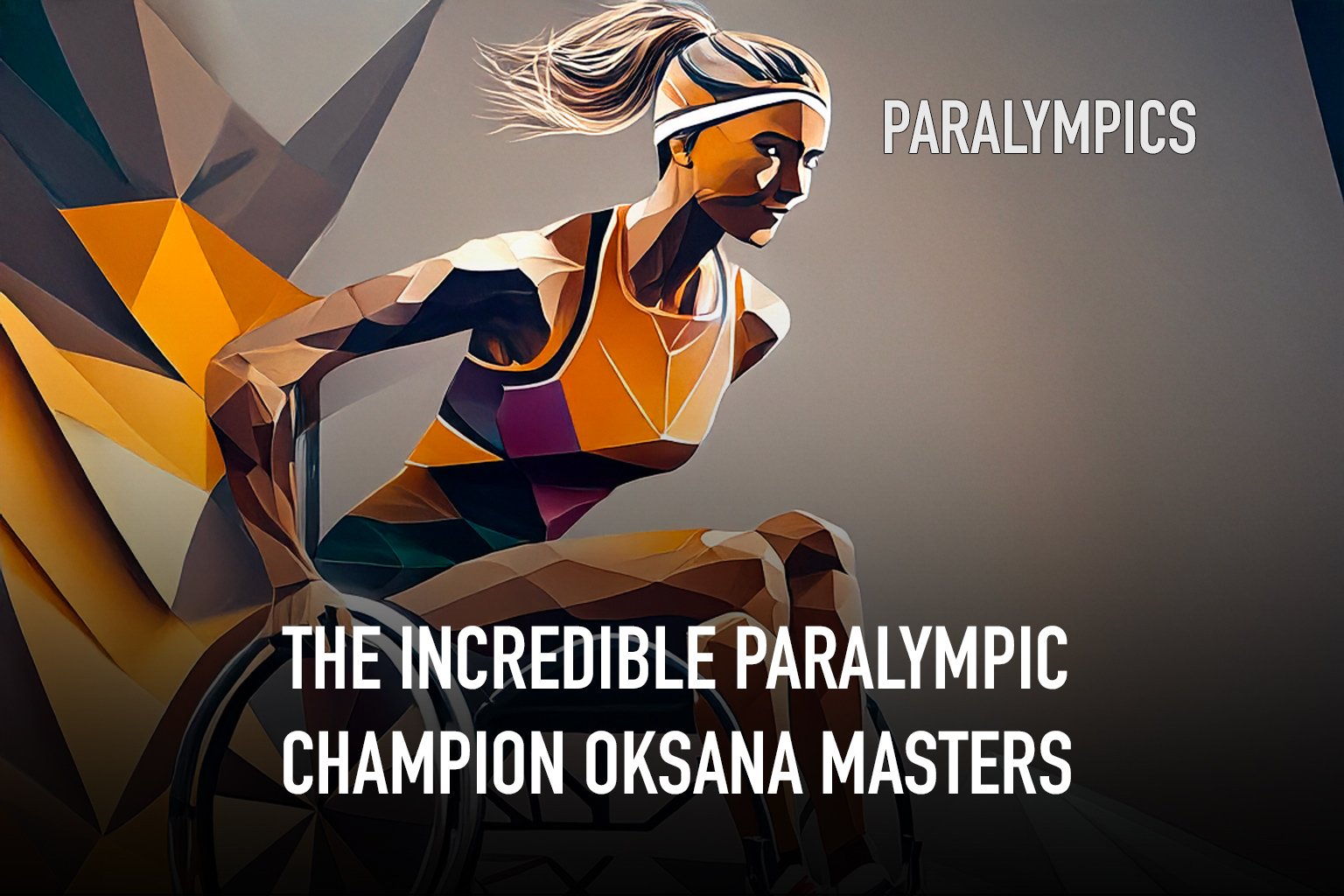THE INCREDIBLE PARALYMPIC CHAMPION OKSANA MASTERS

Oksana Masters is a name that resonates with triumph over adversity. As the most decorated para-athlete in history, her journey to the pinnacle of sports is nothing short of miraculous.
Born in 1989 in Ukraine, Oksana came into the world with severe physical deformities, a consequence of the Chernobyl nuclear disaster. Her legs had no bones, her hands were webbed with missing thumbs, and her left leg was shorter than her right. On top of that, she was born without a kidney, parts of her stomach, and with various other medical issues. These challenges led her birth parents to abandon her, leaving her to grow up in Ukrainian orphanages.
For the first seven years of her life, Oksana lived in three different orphanages, each with its own horrors. One of them, which she later described as a “brothel for minors,” subjected her to unspeakable abuse. From the age of five to seven, she and other children were regularly taken to a “room upstairs” where they were sexually abused. Amidst this nightmare, Oksana found solace in a photograph of a woman with glasses, smiling warmly. This woman was Gay Masters, a professor from the United States who had seen Oksana’s picture among hundreds of other orphans and felt an immediate connection.
Gay Masters was determined to adopt Oksana, despite the obstacles she faced as an unmarried woman in the 1990s. It took her two long years of psychological evaluations and endless paperwork, but in 1997, she finally brought Oksana home to the U.S. The transition was overwhelming for Oksana, who had never known a life without fear, hunger, or pain. She was eight years old, weighed just 35 pounds, and had the height of a three-year-old. But for the first time, she had her own room, toys, and more than enough food. Yet, the scars of her past lingered. Oksana hoarded sugar cubes, cried at night, and never spoke of the abuse she had endured, fearing she would be sent back to the orphanage.
It was Gay who introduced Oksana to sports, starting with ice skating and swimming. But it was rowing that became Oksana’s refuge. At 13, she began rowing, and for the first time, she felt in control of her life. She soon realized that the more she pushed herself physically, the stronger and more capable she became. Rowing gave her a healthy outlet for the pain she had bottled up inside.
However, Oksana’s path was far from smooth. At nine, she had to have her left leg amputated due to her congenital deformities. Five years later, her right leg was also amputated. These surgeries were traumatic, but Oksana never let them break her spirit. She focused on what she could do rather than what she had lost.
In 2012, Oksana competed in her first Paralympics in London, winning a bronze medal in rowing. But that was just the beginning. After a back injury forced her to leave rowing, she took up cross-country skiing and biathlon. She quickly became one of the best in the world, winning multiple medals at the 2014 Sochi Paralympics. Her return to the region close to her birthplace gave her an extra push, and she dedicated her victories to her mother, Gay, who had fought so hard to give her a better life.
Oksana’s story took another turn when she met Aaron Pike, a fellow Paralympian, in 2014. The two connected over their shared experiences and love for sports, and they became a couple. Aaron introduced Oksana to para-cycling, which soon became another arena where she excelled. In the 2016 Rio Paralympics, she narrowly missed the podium in cycling, finishing fourth. But Oksana was not deterred; she used this setback as motivation to push harder.
Her perseverance paid off at the 2018 PyeongChang Winter Paralympics, where she won five medals, including two golds in cross-country skiing. Despite breaking her elbow just weeks before the Games, Oksana competed and triumphed, proving once again that nothing could stop her. She followed this with another stellar performance at the 2020 Tokyo Paralympics, where she won two golds in cycling. And just six months later, at the 2022 Beijing Winter Paralympics, Oksana added four more medals to her collection, cementing her legacy as one of the greatest para-athletes of all time. And, of course, she added another gold to her collection in the women’s road race H5 at the Paris 2024 Paralympic Games.
Oksana’s success on the global stage is not just a testament to her physical abilities but to her indomitable spirit. She has become a symbol of resilience, not only representing the United States but also honoring her Ukrainian roots. When Russia invaded Ukraine in February 20204, Oksana used her platform to speak out, dedicating her performances to both countries. She has called for the exclusion of Russian athletes from the Olympics and Paralympics, standing in solidarity with her fellow Ukrainians who are fighting for their lives and their country.
Oksana Masters is not just an athlete; she is a true role model and embodies hope, courage, and the human capacity to overcome even the darkest of circumstances. Her story inspires millions around the world, proving that no matter where you start, you can achieve greatness with determination, resilience, and a heart full of fight.
